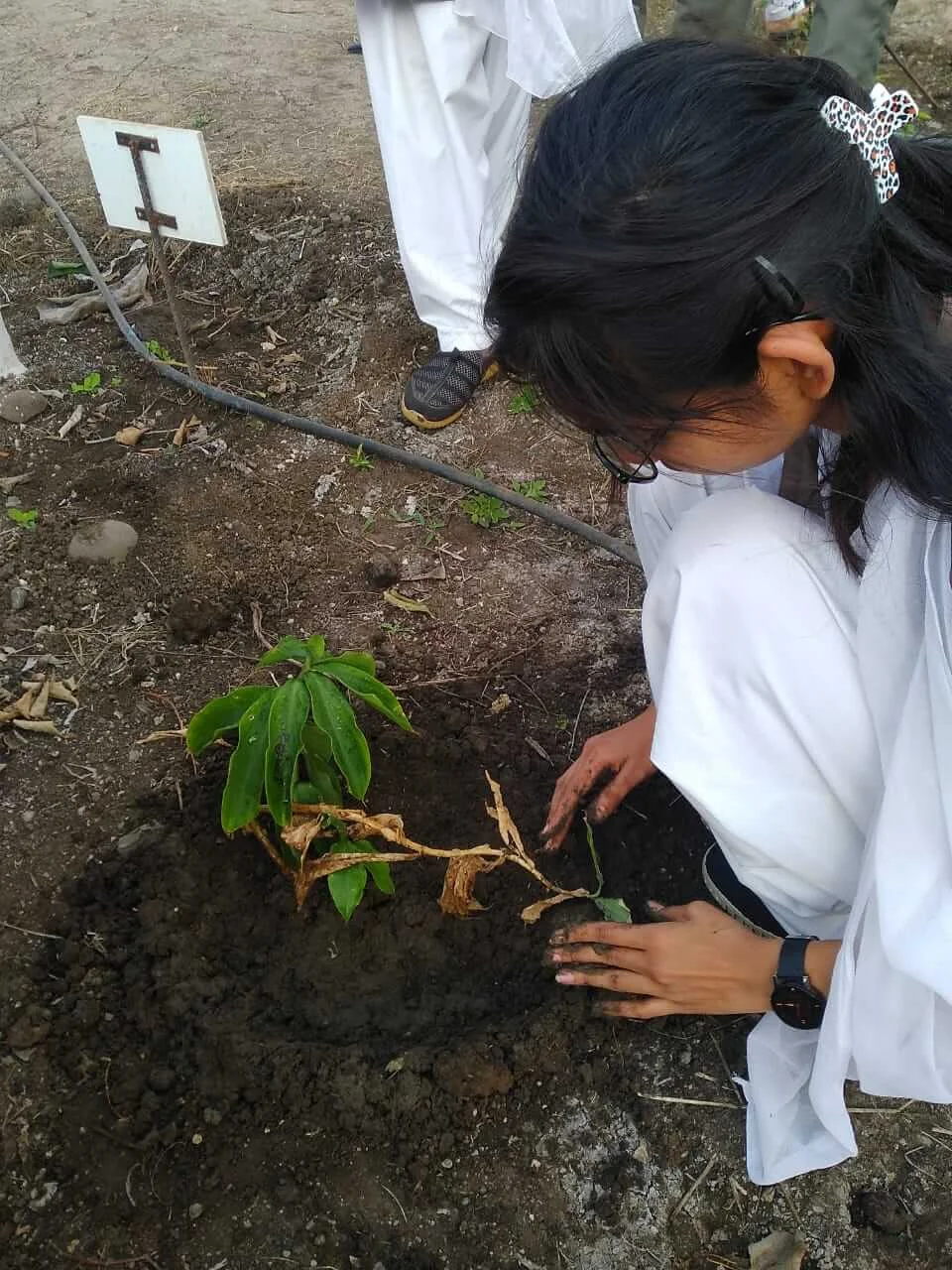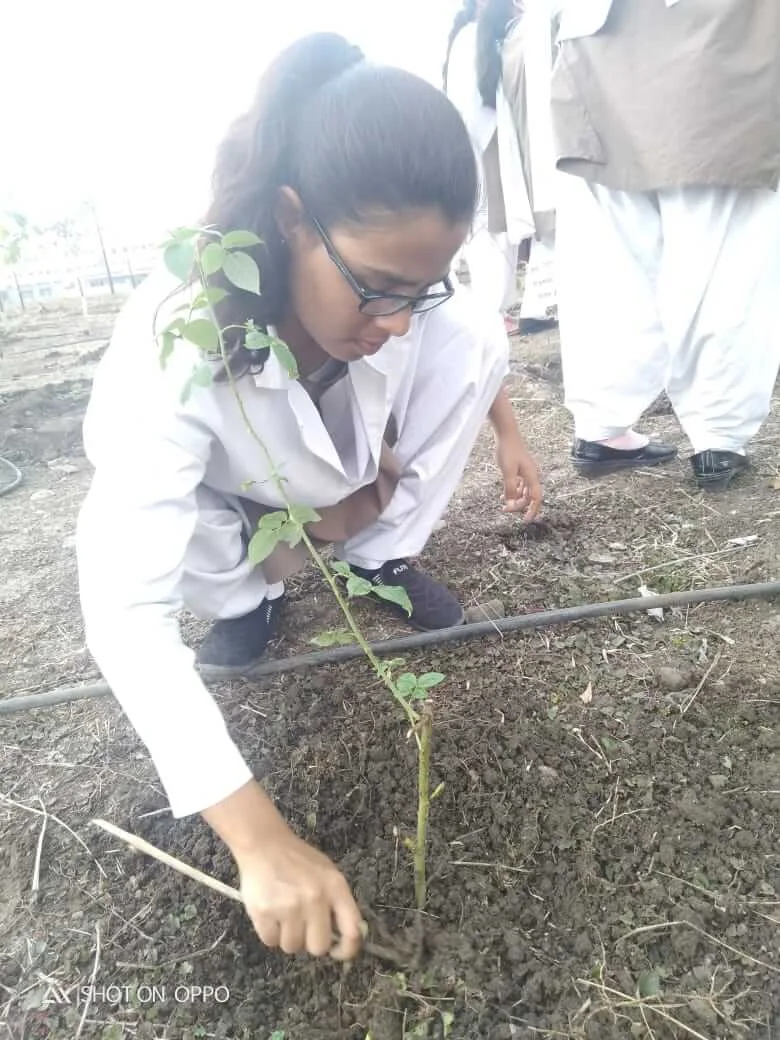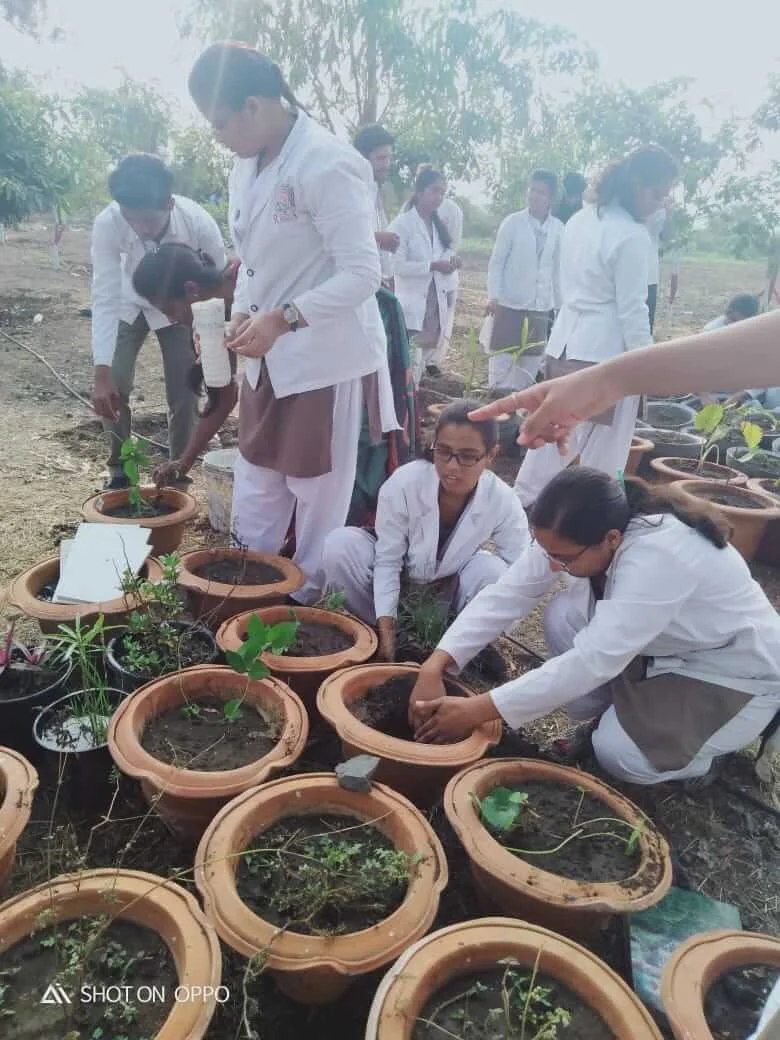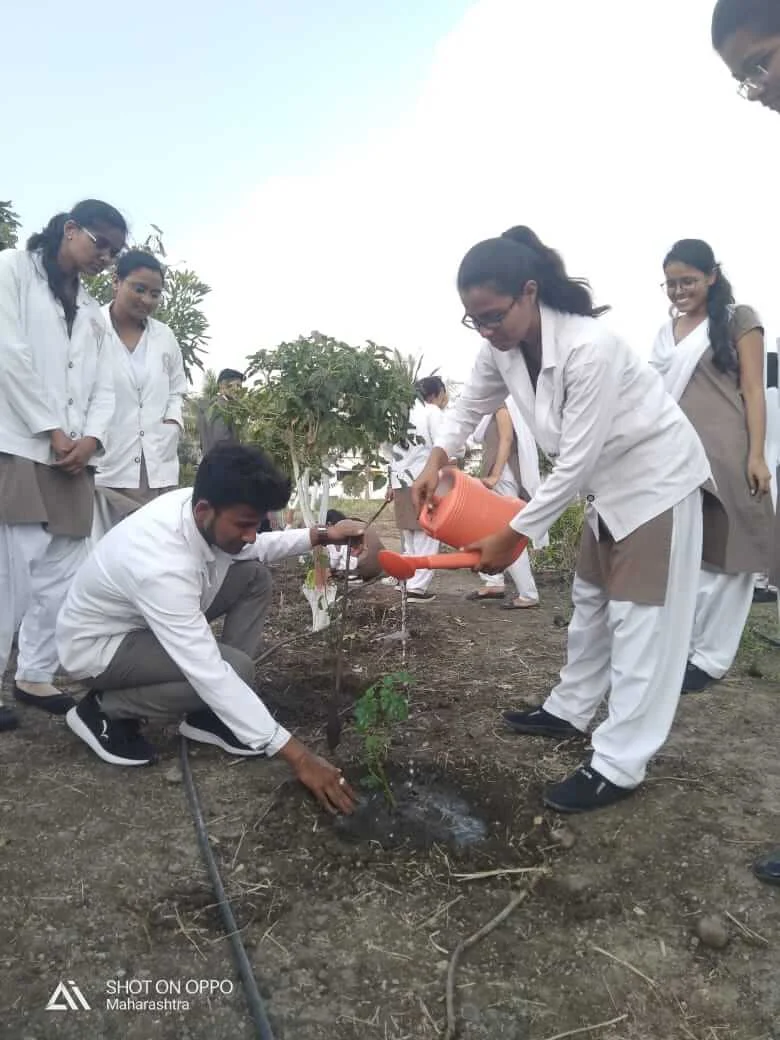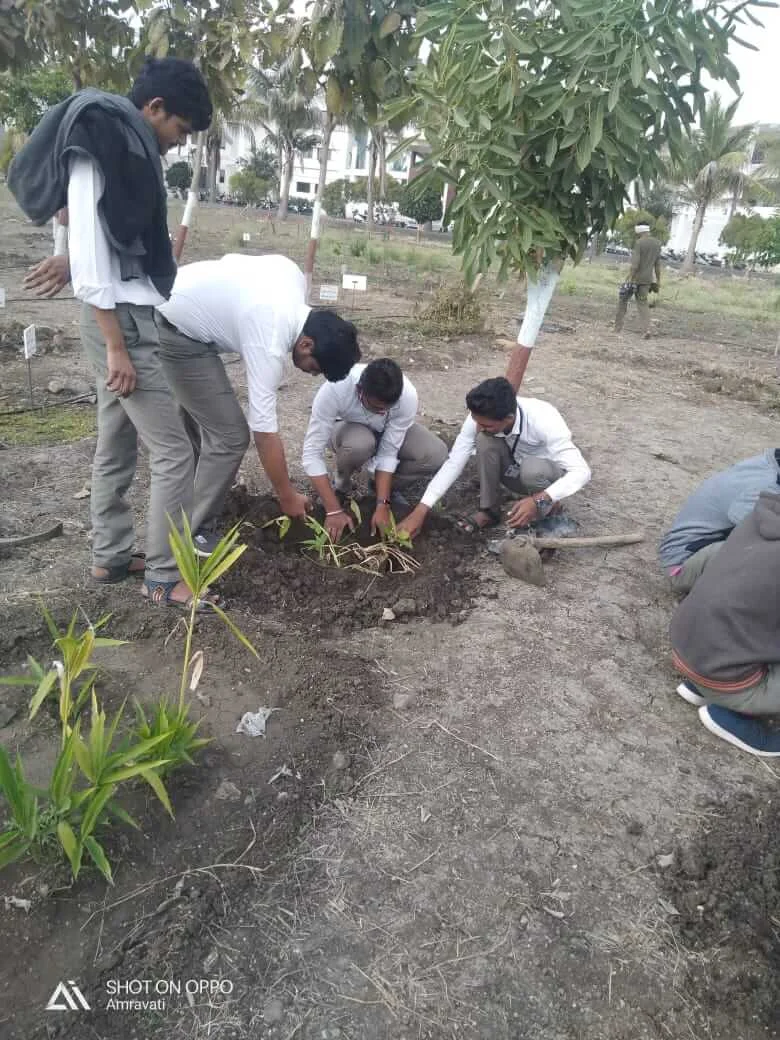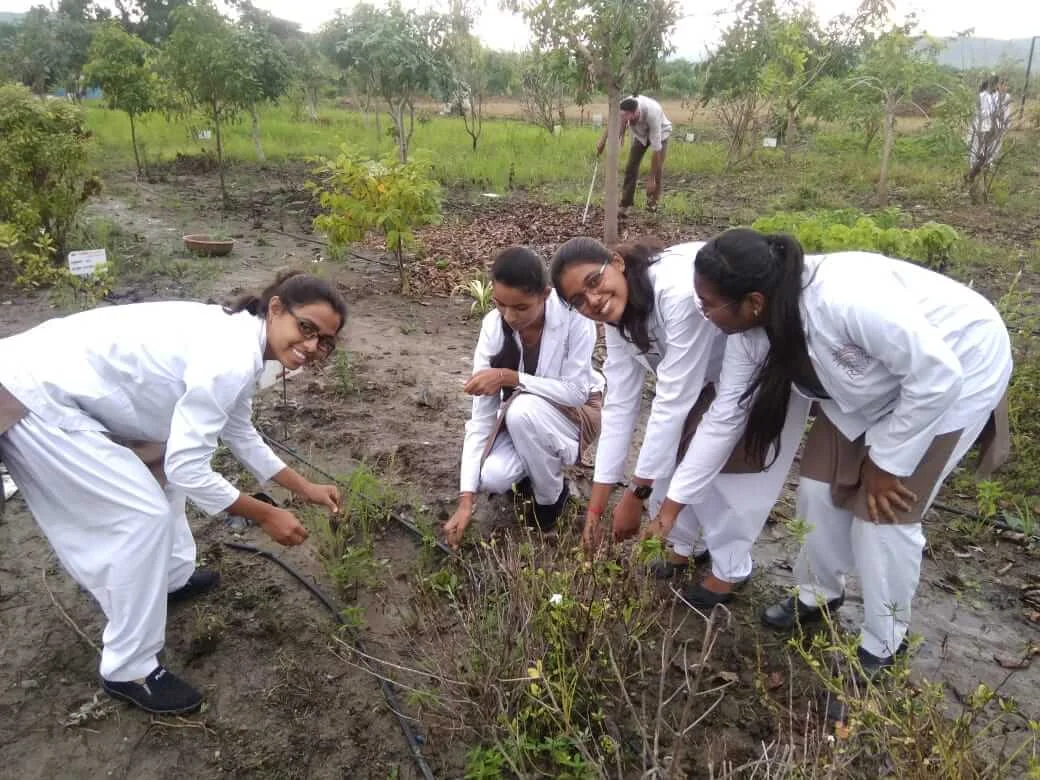Dr. Rajendra Gode Ayurved College Herbal Garden spans a generous area of 4,174 square meters, showcasing a diverse collection of plants with healing properties. The garden is home to a total of 830 plants, representing 270 unique species. This rich diversity provides a comprehensive view of the world of herbs, catering to both novice plant enthusiasts and seasoned herbalists.
1. Wide Variety of Plants
The garden is designed to offer a wide range of plants with medicinal and aromatic properties. With 270 species, each plant is carefully curated to showcase various types of herbs used in traditional medicine, aromatherapy, and modern herbal practices.
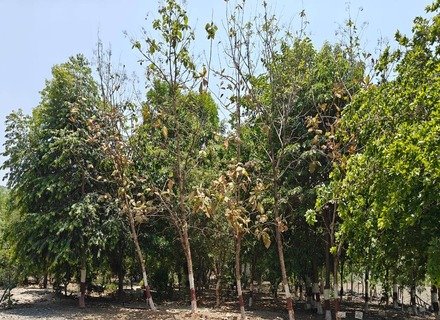
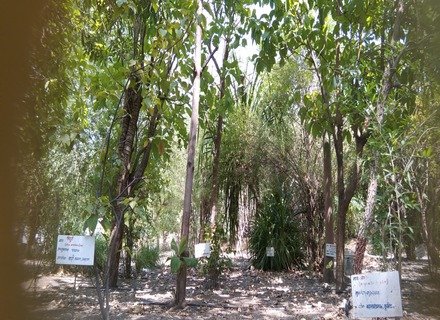
2. Rare and Noteworthy Species
Among the many plants in the garden, there are several rare and significant species that hold a special place in herbal medicine:
Vacha (Acorus calamus): Known for its cognitive-enhancing properties, Vacha is often used in Ayurvedic medicine for improving memory and clarity of thought.
Ashoka (Saraca asoca): A revered plant in traditional medicine, particularly for women's health, Ashoka is believed to help regulate menstrual cycles and alleviate uterine disorders.
Guggul (Commiphora wightii): Famous for its anti-inflammatory and cholesterol-lowering effects, Guggul is a key herb in both Ayurvedic and modern healing practices.
Sarpagandha (Rauwolfia serpentina): Known for its role in managing hypertension and its tranquilizing properties, Sarpagandha has been used in traditional medicines to treat various nervous system disorders.
Raktachandan (Pterocarpus santalinus): Also known as Red Sandalwood, Raktachandan is prized for its soothing properties and is often used in skincare treatments and as an anti-inflammatory agent.
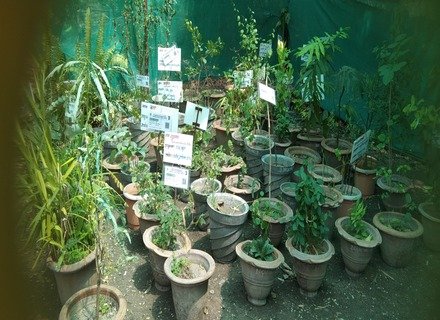
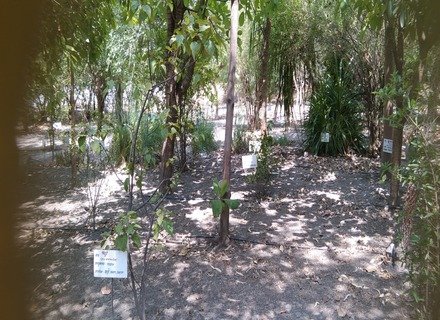
3. Demonstration Room
The garden features a dedicated demonstration room where visitors can gain deeper insights into the uses and benefits of each plant species. The room serves as an educational space, with detailed information about how to use, cultivate, and incorporate these herbs into daily life. It is the perfect spot for workshops, learning sessions, and hands-on experiences with herbal products.
4. Educational and Healing Space
The garden is not just a collection of plants, but also a space for learning and healing. Whether you are interested in the therapeutic properties of herbs or looking to start your own herbal garden, this space offers plenty of knowledge and inspiration.
5. Sustainability and Conservation
This herbal garden is designed with sustainability in mind. The focus is on growing plants organically, without the use of harmful chemicals or pesticides, ensuring that the healing power of nature remains intact. Conservation efforts are also a key priority, with the garden serving as a safe haven for rare and endangered plant species.
Dr. Rajendra Gode Ayurved College Herbal Garden is a harmonious blend of nature, tradition, and education. It provides an invaluable resource for anyone interested in herbal medicine, sustainable gardening, and the preservation of rare plant species. With its rich biodiversity, rare plants, and educational spaces, the garden is a perfect retreat for those seeking knowledge or simply a moment of peace amidst nature.
